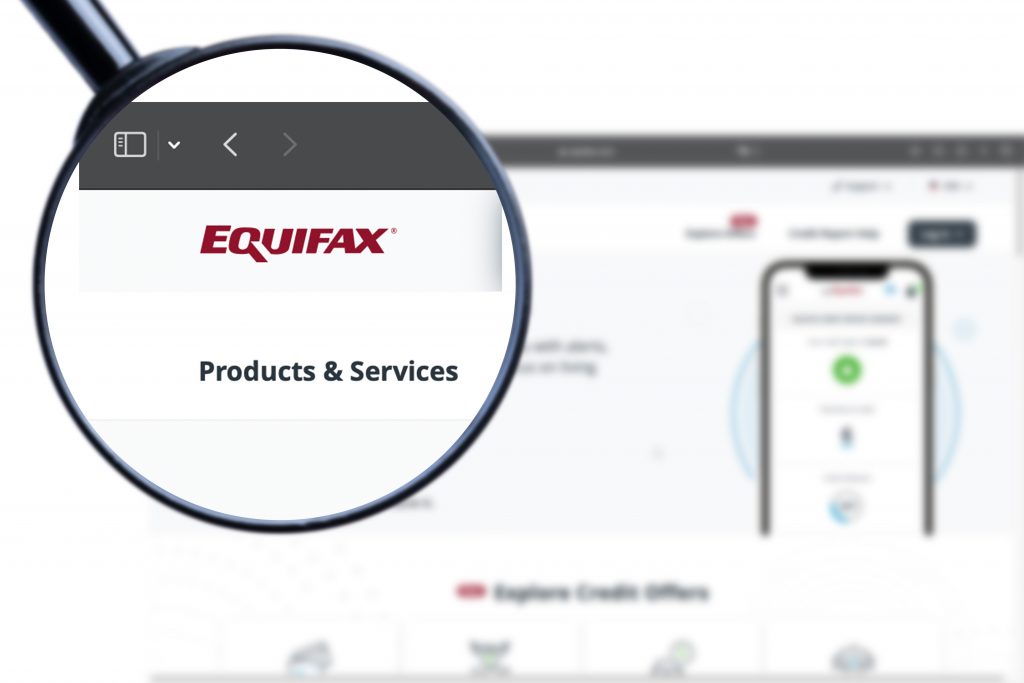Finances
TransUnion vs Equifax: Which One is Better?
Uncover the nuances between TransUnion and Equifax, delving into their credit score models, reporting accuracy, and exclusive services for comprehensive credit oversight and fraud security.
Advertisement
A Complete Guide to Choosing the Best Credit Bureau

TransUnion vs Equifax is a crucial comparison for anyone managing their credit. Each bureau offers distinct scoring methods and services, but which is better for your finances?

Credit cards for fair credit: choose the right card for you
If you have a fair credit score, it's important to choose the right credit card. We've compiled a list of six excellent cards that will help improve your credit rating.
Discover the nuances in the TransUnion vs Equifax debate. Our guide delves into their credit scoring models, accuracy, and unique services to help you make an informed choice.
What is the difference between TransUnion and Equifax?
In the TransUnion vs Equifax debate, it’s crucial to know their unique approaches. Both are key credit bureaus, but their credit scoring methods differ significantly.
TransUnion typically utilizes the VantageScore model, ranging from 300-850. This system places a greater emphasis on recent credit activities, offering a distinct perspective.
Equifax, in contrast, uses its educational credit score model. This model, with a similar 280-850 range, gives more weight to your overall credit history.
The data each bureau collects can also vary. Some lenders report to both, but others may choose just one, leading to discrepancies in your credit reports.
Additionally, the timing of data updates matters. TransUnion and Equifax may receive updates at different times, affecting the currentness of your credit score.
Lastly, each bureau offers unique credit monitoring and fraud protection services. Understanding these differences is key for effective credit management.
You will be redirected to another website
You’ll receive messages for less than 1 week, with a maximum of 1 message per day. You can unsubscribe anytime by replying STOP. By submitting this form, I confirm that I am 18+ years old and agree to the Privacy Policy and Terms and Conditions. I also provide my signature, giving express consent to receive informational messages via automated emails, SMS, MMS text messages, and other forms of communication. Message frequency may vary as part of our good-faith effort to respond to your inquiry. Message and data rates may apply. Text STOP to cancel. I understand that my consent to receive communications is not a condition of purchase and that I may revoke my consent at any time.
How do TransUnion and Equifax calculate credit scores?
Understanding how TransUnion and Equifax calculate credit scores is crucial in the TransUnion vs Equifax comparison.
Each bureau has its unique methodology, impacting how your creditworthiness is assessed. So let’s explore their distinct scoring systems below.
TransUnion
TransUnion calculates credit scores using the VantageScore model, which scores from 300 to 850. It gives a snapshot of your current credit health.
A key factor in TransUnion’s scoring is your payment history. Late payments can significantly lower your score, reflecting your credit reliability.
Credit utilization is also crucial for TransUnion. It’s how much credit you’re using compared to what’s available, impacting your score’s dynamics.
In the TransUnion vs Equifax comparison, TransUnion uniquely weighs recent credit inquiries and new accounts. This can temporarily affect your score.
Finally, TransUnion considers the diversity of your credit accounts and your credit history’s length. It provides a comprehensive view of your creditworthiness.
Equifax

Equifax uses its proprietary scoring model, focusing on your long-term credit history, with scores ranging between 280 and 850.
Payment history is also a significant factor for Equifax. Timely payments boost your score, and late payments can lead to a decrease.
Another similarity is credit utilization, which is key in Equifax’s calculations. It assesses how much credit you use versus your total credit limit, influencing your score.
Unlike TransUnion in the TransUnion vs Equifax comparison, Equifax places more emphasis on the age and types of credit accounts you have.
Equifax also evaluates the number of credit inquiries and your public records. This can include any legal judgments or bankruptcies affecting your score.
Which credit bureau is more accurate: TransUnion vs Equifax?
Considering accuracy in TransUnion vs Equifax? Then it’s key to understand that precision is a top priority for both credit bureaus.
TransUnion and Equifax use similar data sources. However, not all lenders report to both, leading to some differences in credit scores.
Each bureau has its own methods to check and correct data. They aim to make sure the credit information they share is as accurate as possible.
If you find any errors in your report, you can dispute them with either bureau. This process helps keep your credit report accurate by fixing mistakes.
The timing of updates can also affect your score. TransUnion and Equifax may update their records at different times, impacting accuracy.
So, neither TransUnion nor Equifax is always more accurate. Each credit bureau provides a useful, though sometimes slightly varied, view of your credit health.

Is 700 a good credit score?
Is 700 points a good credit score? What advantages do you have access to when you build your credit up to this level? How to keep evolving your score? Read this article and find out!
Which one is more important to lenders: TransUnion or Equifax?
In deciding which is more important to lenders, it’s essential to know that both are widely used and respected.
Lenders often consider both TransUnion and Equifax reports. Each bureau’s report offers a different view of a borrower’s credit history.
Some lenders may prefer TransUnion for its emphasis on recent credit activities. However, others might lean towards Equifax for a comprehensive history.
In the TransUnion vs Equifax comparison, the choice for lenders often depends on their specific requirements and lending criteria.
For larger loans like mortgages, lenders might look at both reports to get a complete picture of the borrower’s creditworthiness.
Ultimately, neither TransUnion nor Equifax is universally more important to lenders. Each report contributes valuable insights into a borrower’s credit.
What factors can influence your credit score at TransUnion and Equifax?
Knowing what influences your credit score at TransUnion and Equifax is essential for effective credit management.
Different factors contribute to how these bureaus assess your creditworthiness. We’ll explore these key elements next, giving you insights to optimize your credit score.
Payment History
Payment history is a critical factor for both TransUnion and Equifax. Timely payments positively impact your score, while late payments can lead to a decrease.
Both bureaus monitor your payment patterns over time.
Consistent on-time payments improve your score, emphasizing the importance of regular, timely debt repayment.
Credit Utilization
Credit utilization ratio plays a significant role in your credit score for both bureaus. It’s the amount of credit you’re using compared to your total available credit.
TransUnion and Equifax assess how well you manage your existing credit. Keeping your credit utilization low demonstrates responsible credit usage.
Length of Credit History

The length of your credit history affects your score at both TransUnion and Equifax.
A longer credit history typically provides a more favorable score, as it shows a longer track record of managing credit.
Both bureaus consider the age of your oldest account and the average age of all your accounts.
This factor underscores the benefit of maintaining long-standing credit accounts.
New Credit Inquiries
New credit inquiries can impact your score at both TransUnion and Equifax. Applying for new credit can cause a temporary dip in your score, as it may suggest financial instability.
However, the impact of new credit inquiries is usually minor and short-lived. Both bureaus note that shopping for the best loan rates within a short period is less harmful.
Types of Credit Used
The variety of credit types you have is considered by both TransUnion and Equifax.
A mix of credit types, like credit cards, loans, and mortgages, can positively impact your score.
Having a diverse credit portfolio shows that you can manage different types of credit responsibly. Both bureaus view this diversity as a sign of a well-rounded credit user.
Public Records and Collections
Public records and collections can negatively impact your score at both TransUnion and Equifax. This includes bankruptcies, foreclosures, liens, and collection accounts.
Both bureaus treat these items as serious indications of credit risk. It’s crucial to avoid situations that lead to public records or collections to maintain a healthy credit score.
Credit score vs credit report: everything you need to know
That’s a wrap in our TransUnion vs Equifax debacle and understanding credit scores.
However, there’s another vital piece to the puzzle: the difference between a credit score and a credit report.
Knowing this distinction is key to mastering your financial health. Understanding the nuances between your credit score and credit report is essential.
Basically, your score is a quick summary. Now, your report provides the full story behind the number. It details your credit history, accounts, and more.
Want to dive deeper into the world of credit scores and reports and master the art of credit management? Then check out our detailed guide below and unlock a better credit future.

Credit score vs. credit report
Your credit score and credit report can make your financial life easier or more difficult. So understand what they are and why they are so important.
Trending Topics

Delta Air Lines: cheap flights and offers
Learn how to find the "secret discounts" for cheap flights Delta Air Lines offers. Find flights from $79.99 and save a lot on your next trip!
Keep Reading
Annual fee: everything you need to know about
Wondering what an annual fee is? How it works? Whether you should pay for one? How to avoid it? This article has everything you need to know!
Keep Reading
Chime Visa® debit card: check out how to apply!
Apply for the Chime Visa® debit card and get a fee-free debit card that allows you to control your financial life from your cell phone.
Keep ReadingYou may also like

Unlocking opportunities: Navy Federal Student Loan Review
Discover the pros and cons of Navy Federal Student Loan in this comprehensive review and see if it’s worth it! Finance up to $120K quickly!
Keep Reading
Housing Assistance: discover different programs that can benefit you
Meet Housing Assistance, the federal program that can guarantee better quality housing for needy families across the country.
Keep Reading
Oportun Personal Loans review: Affordable Loans for All!
Explore our Oportun Personal Loans review to discover affordable, accessible lending options designed for a secure financial future!
Keep Reading